|
In St. Peter’s speech at Pentecost he proclaims, “But God raised him up, releasing him from the throes of death, because it was impossible for him to be held by it.” (Acts 2:24) The truth of St. Peter’s words is made manifest in the liturgical rhythm of the Church year. Just as our Lord could not be held by the grave, the celebration of Easter cannot be held to just one day. In her beauty, the Church does not stop at the Octave of Easter either, but offers the faithful an entire liturgical season—50 whole days—to glory in Jesus’ resurrection. As Pope St. John Paul II declared, “We are an Easter people.” But once the beautiful liturgies of the Octave are behind us, the Easter lilies are removed from the churches, and the carrot cake has all been eaten, how are we to be an Easter people?
One good place to begin is entering into the celebration of the liturgy. I have a distinct childhood memory of attending Easter Sunday Mass while my family was away on spring break. During the homily the priest invited everyone to exclaim ‘alleluia!’, and then do it again because we weren’t enthusiastic enough. As an unobservant and not-the-best catechised child, the purpose of this exercise was lost on me. But now, as a frequent daily Mass attendee I am much more aware of the forty long, alleluia-less days of Lent and more fully appreciate the significance of proclaiming alleluia together with renewed vigor on Easter and in the days that follow. During Lent many of us are motivated to make more time for Mass or prayer in our lives, which are beautiful practices to continue through the Easter season and beyond. Throughout the Masses of the Octave, the Victimae paschali laudes, an ancient chant, may be recited before the Gospel. Whether you attend Mass and hear the chant or simply take time to meditate on it each day, it is a beautiful tool for reflecting on the Paschal mystery in our lives and offering extra praise to the Lord: “The sheep are ransomed by the Lamb; / and Christ, the undefiled, / hath sinners to his Father reconciled.” Just as Lent is a time of remembering our mortality, Easter can be a time of remembering our Eternal life. Another liturgical tool to draw on is the Liturgy of the Hours, the communal prayer of the Church. In Morning Prayer throughout the Octave, we use the same psalms and canticle of Easter Sunday morning for all eight days. Particularly striking is the Canticle of Daniel (Daniel 3:57-88, 56), in which we pray that all things on Heaven and Earth bless the Lord: Let us bless the Father, and the Son, and the Holy Spirit. Let us praise and exalt him above all forever. Blessed are you, Lord, in the firmament of heaven. Praiseworthy and glorious and exalted above all forever. Whether you are able to pray Morning Prayer, or any of the other hours, in community or humbly pray them alone, you are still raising your prayers with all the faithful throughout the Earth and elevating them through Jesus to the Father. Throughout the Easter season, the first readings at Mass are taken from the Acts of the Apostles. Practically this makes sense since Acts recounts the events following Jesus’ death and resurrection. But there is also a spiritual significance to reading from this book during the Easter season. Just like His first disciples, we aren’t meant to keep our alleluias and joy in the Lord’s resurrection and salvation confined to our churches or to ourselves, but to proclaim them to the world. It took a little encouragement for the apostles to do this, and so it may for us, but we too can say with St. Peter: “He commissioned us to preach to the people and testify that he is the one appointed by God as judge of the living and the dead. To him all the prophets bear witness, that everyone who believes in him will receive forgiveness of sins through his name.” (Acts 10:42-43) The Easter season is a grace-filled time to unite ourselves to this age-old mission of the Apostles and share the Good News of Jesus. The Catechism of the Catholic Church tells us that, “Beginning with the Easter Triduum as its source of light, the new age of the Resurrection fills the whole liturgical year with its brilliance.” (Paragraph 1168) At the Easter Vigil, the faithful are invited to renew their baptismal promises and remember the light of Christ that is within them. As we make our way through the Easter season, let us glorify Christ in the liturgy and let the brilliance of the Eternal Light shine forth from our churches and our hearts.
0 Comments
\We are once again in the midst of the liturgical season of Lent. These forty days before the Triduum are opportunities to prepare ourselves to enter into the Passion of Christ through penitential practices such as prayer, fasting, almsgiving, and self-sacrifice. Done correctly, our Lenten practices can be cathartically cleansing as we imitate Christ’s forty days in the desert after His baptism. This incredible withdrawal of the Lord from the outside world to dwell on the calling of His Heavenly Father before the commencement of earthly ministry remains a model for us all. During Lent, the faithful do not isolate themselves from the world in fear but rather draw strength from Christ. Shaking off the comforts and complacencies of living in the world may be a bit jolting, but our ultimate goal is holiness; anything else is just a noisy distraction which can never truly satisfy our deepest desires. Today, technology has become integrated into our lives and relationships. Social media, the internet, and the incredible utility of our smartphones may occupy a large part of our daily attention. It’s no wonder we can find it harder to disconnect from the outside world. Indeed, while the proper and moderated use of technology can be beneficial, observing the dangers of failing to unplug from the world (i.e., harming real human connections), has helped deepen my appreciation for the isolation opportunities afforded by Lenten observances. Lent calls each of us to remember the ultimate sacrifice God Himself made on Good Friday. This salvific act is so significant that it cannot be restricted to just one day on the liturgical calendar. The Church commemorates Jesus’ Last Supper, Passion, and Death during the Triduum. As these days draw near, the faithful are called to prepare themselves to enter into the Paschal Mystery by putting aside our worldly comforts and imitating how our Lord spent precious time among His disciples before His death. While Lent is an increased time of preparation and time of intentional growth in holiness, the Church has no shortage of opportunities to deepen our relationship with the Lord year-round. Sunday Mass offers us the spiritual nourishment and proper grounding to start each week. The choices we make in the hours or days following Mass can build upon the scriptural and sacramental foundations laid during the service. Recommitting ourselves to our families and their needs can strengthen the love binding us together; praying with and serving each other builds up the domestic church. For example, volunteering to lead devotional prayers together as a couple or family is a beautiful expression of intimacy and faith. Additionally, during Lent and beyond, we may replace screen time with spiritual reading so we can be inspired by the writings of saints or theologians and discover new avenues of holiness for our lives. Certainly, we can sacrifice a worldly comfort during Lent, but we can also perform charitable works and make a difference in the lives of others during this season. Lent is not a diet! Lent is intended to bring us closer to God, Who is found not in the noise of the world, but in the quiet whisperings of an open heart. Prayer enables us to make room in our hearts for Him to dwell in the temples of our bodies and radiate through our lives. We cleanse ourselves of distractions that prevent us from the holiness He calls us to and we commit ourselves to prayer, fasting, and almsgiving. We repent of our sinful shortcomings and avail ourselves of the sacraments of the Church. Our desire to accompany our Lord can be fulfilled by our faithful vigilance in Eucharistic Adoration, especially in the nighttime hours when our “spirit is willing, but the flesh is weak.” Our Lord is present in the Eucharist we receive at Mass, the Sacrament we adore, the family we are a part of, and the people we serve. He is always ready to not just be a relegated part of our lives, but the core of our very being. The season of Lent can serve to motivate us to choose the better part rather than be complacent in the empty comforts of the world. Though we seek isolation from the distractions of the world to accomplish a meaningful and fruitful Lenten observance, we are promised by the Lord God Himself that we never walk alone when he says: “I am with you always, until the end of the age.” For more resources to accompany you throughout your Lenten journey, please click here. In the movie The Farewell, the central plot hinges on the question of an individual vs. communal approach to the burden of end of life care. One of the central characters has cancer, and the issue surrounding the family is whether the person with the disease should know or not. In the US, as the movie acknowledges, such duplicity would not be likely to happen, but in China, where the movie takes place, society often allows for such things because they believe the burden of suffering is to be carried by the family and friends rather than the sick or afflicted. I found that to be a fascinating concept because most of us have experienced the loss of someone due to cancer, and the question of death and mourning is a very present concern to all of us. I would recommend viewing the movie, if for nothing less than to understand the potential hardships of walking with someone who is about to die and with those that love them. Our faith acknowledges that our time on earth is not all that there is, but rather that we are made for heaven and joining God. The Catechism of the Catholic Church declares: “The Christian funeral is a liturgical celebration of the Church. The ministry of the Church in this instance aims at expressing efficacious communion with the deceased, at the participation in that communion of the community gathered for the funeral, and at the proclamation of eternal life to the community (CCC 1684).” As Catholics, we believe that there is life after our life on earth. So the funeral and death itself serve as reminders of the Paschal Mystery and our hope for all—and in particular, those who have just died—to have eternal life in heaven with the Lord. The prayer spoken while receiving ashes on Ash Wednesday is a poignant reminder of this: “Remember you are dust and from dust, you shall return.” Time on earth is fleeting, but time in heaven is eternal. As Catholics, we are part of a community of believers. We must not only accompany the one who is preparing to die, but also those who the deceased is leaving behind. This is not the responsibility solely of the priest or deacon presiding over the funeral rites, but rather a shared responsibility of all the church. The Catechism goes further to explain that funeral ceremonies have the Eucharistic Sacrifice as a critical component because: “It is by the Eucharist thus celebrated that the community of the faithful, especially the family of the deceased, learn to live in communion with the one who ‘has fallen asleep in the Lord,’ by communication in the Body of Christ of which he is a living member and, then, by praying for him and with him” (CCC, 1689). It is essential as a community of faithful to also accompany those left behind who are grieving the loss of a loved one. This grief is normal and completely human, but it means that we need to accompany those grieving and serve as a living reminder of Christ’s presence in their lives. We are called to serve as witnesses to those we encounter daily, whether we know them well or not. As stated in the book the Art of Accompaniment: Theological, Spiritual, and Practical Elements of Building a More Relational Church: “Witnessing can be effective even if a deep, committed relationship is not yet formed…witnessing demonstrates an example of an integrated Christian life within the one who witnesses. … Witnesses are essential to the process of spiritual accompaniment because, ‘modern man listens more willingly to witnesses than to teachers, and if he does listen to teachers it is because they are witnesses (Evangelii Nuntiandi)’ (Art of Accompaniment 16)” Times of suffering and hardship are especially profound moments for evangelization and witness. As a Church, we can offer hope and healing to those who are dying or grieving the loss of a loved one. For more resources on Accompaniment, please click here. The Feast of Pentecost occurs on the seventh Sunday following Easter Sunday. On this day, we commemorate the occasion of the Holy Spirit descending upon the disciples of Jesus, marking them each with “tongues of flame,” and allowing them to speak and proclaim in different tongues, or languages. To describe this moment in early Church history as a “tipping point” would be an understatement. Pentecost signifies a unique outpouring of God’s love and spirit upon those first men and women to follow Jesus Christ, empowering them to expand and carry His message of salvation to all nations. Today’s first reading from the Acts of the Apostles depicts this anointing of the Holy Spirit, in such a way that has inspired numerous works of music, literature, and art – including some artwork appearing here at the Catholic Apostolate Center! As I reflect on the mystery of Pentecost, and ponder what it could mean for us in this current day, I am drawn to these particular passages from today’s Scriptures: Reading 1: ACTS 2:1-11 “And suddenly there came from the sky a noise like a strong driving wind, and it filled the entire house in which they were. Then there appeared to them tongues as of fire, which parted and came to rest on each one of them.” Have you ever been in a room that was particularly quiet – and then suddenly, for no discernable reason, your senses sharpened dramatically? When I read today about the “strong driving wind” filling the entire house where the disciples were, this sort of heightened awareness is what I imagine the disciples could have felt right before the Spirit arrived and the tongues of flame appeared. Especially in this season following the Paschal mystery, I view this reading as an invitation to seek and contemplate God in the quiet places with an open heart to what may come. Reading 2: 1 COR 12:3B-7, 12-13 “There are different kinds of spiritual gifts but the same Spirit; there are different forms of service but the same Lord; there are different workings but the same God who produces all of them in everyone.” At Pentecost, the flames parted and “came to rest on each one of them [disciples].” I find this so encouraging! This past Lent, we read about Moses and the burning bush, from which God calls out, “Moses! Moses! ...Do not come near! Remove your sandals from your feet, for the place where you stand is holy ground.” Now, at the historical moment of Pentecost, fire is actually sent and bestowed upon each follower. God is still a mystery, as is the Holy Spirit – but a mystery that comes to us and rests upon us. We should not be afraid to be humble like Moses (removing our sandals before God) while at the same time accepting with joy and utilizing with courage the gifts the Spirit may bestow to each of us, according to our unique natures. Gospel: JN 14:15-16, 23B-26 "I have told you this while I am with you. The Advocate, the Holy Spirit whom the Father will send in my name, will teach you everything and remind you of all that I told you." This age of instant communication is hopeful and perplexing all at once. On the one hand, technological advances have made worldwide communication easier than ever – truly a remarkable gift! On the other hand, we have all experienced how shorthand communication styles can misconstrue intended messages and cause confusion or even lasting harm. To me, the promise of Pentecost speaks directly to these challenges. Through the Holy Spirit, we may learn to genuinely and faithfully connect with one another despite all of our perceived differences. There is a definitive continuation of the Easter message contained in today’s Gospel when we are told of “The Advocate… who the Father will send in my name.” We are not alone, even though we live long after the age of Christ. Perhaps this is what is meant when He once said, “I am with you always, until the end of the age” or “Where two or three are gathered together in my name, there am I in the midst of them.” I believe that the Holy Spirit does blow through the rooms of our houses and within our hearts, even today. And while we may not see with human eyes the flames and the dove from this narrative, I believe that we are all surrounded by people who possess the flame within and have allowed The Advocate to work through them – helping them to become little advocates, little flames, and little doves, living among us, bringing peace. Holy Week can be the most emotionally intense period of the liturgical year. Beginning with Palm Sunday, we notice some changes to the usual liturgy, namely: the opening reading, the much longer narrated Gospel, the red vestments, and the presence of blessed palms. As the week continues, our anticipation may be building towards an emotional peak, probably the commemoration of Christ’s death on Good Friday or His Resurrection on Easter Sunday. We may be tempted to take it all in stride and grimace at the raw details of Jesus’s sacred Passion while holding on for the joys of the Easter proclamation. We are, after all, the “Easter people and Alleluia is our song,” according to St. John Paul the Great. I have found myself guilty of this detachment sometimes and now propose, as we have already entered Holy Week, that we immerse ourselves into the intense details—that raw, human emotion—of the Triduum in order to accompany Christ more closely during the most significant moments of His earthly ministry and the fulfillment of salvific history.
On Palm Sunday, we celebrate the entrance of the Savior into Jerusalem, that sacred capital of the Jewish nation then occupied by the Roman Empire. The joys and uproars that Jesus’s entrance brings facilitate the events at the end of the week, when we observe the frenzied crowd turning against the One they now hail as the long-awaited Messiah. Of course, Jesus knows fully what will come to pass in the next days before the Passover. Do we stand among the crowds welcoming Jesus into our hearts and wanting Him to rule over us as the eternal Heavenly King, or are we like the jealous plotting authorities who resent Jesus over His exposure of our hypocrisy and prideful nature? The days between Palm Sunday and Holy Thursday are filled with anticipation. An observer of the times could tell something big was about to happen in Jerusalem. The holy city would soon be embroiled in the rancor sowed by the authorities against Jesus rather than preparing to celebrate the annual Passover meal. Are we spending this time of calm in prayer and preparation in the presence of the Lord, or are we going about our daily routine until we face the ugliness that has been fermenting against Jesus and that forces us to decide if we will stand against the crowds for the sake of the Savior? Holy Thursday arrives and already the focus may be towards the one evening Mass scheduled at the parish. Many dioceses celebrate the annual Chrism Mass earlier in the day, during which the sacred oils of ministry are blessed by the bishop and distributed among the parishes from the cathedral. In the evening, the Last Supper and the Agony in the Garden of Gethsemane are commemorated with liturgical richness: the humble washing of feet, solemn processions, chanting, the use of candles, Eucharistic adoration after the tabernacle is emptied, and then… silence. There is so much to unpack. We can ask ourselves: Am I heeding the Lord’s request to “Keep watch and pray”? Am I remaining vigilant and faithfully at the side of our Lord as he leads the Passover meal, praying with Him in the garden, or not abandoning Him during His arrest? We, of course, cannot celebrate Easter Sunday without recalling Good Friday. This year, I invite you to place yourself at the foot of the cross and gaze upon Christ crucified. With the Blessed Mother and St. John beside you, behold the sight of the suffering Savior, scourged and dying. Listen to His seven final words and feel their intensity. Here the cruelest injustices have been heaped upon Jesus; He bears them willingly and lovingly. Recall your own failings, which have driven nails and scourged the sacred flesh of our Lord. This can be a true time of repentance and faith. Do I offer even a fraction of the love being poured out from the cross this day? The darkness of Good Friday recedes, Holy Saturday arrives and there is…more silence. Our Beloved Lord has died and there is a sudden emptiness as we come to terms with the reality that the departed is gone. We must not gloss over this period before Easter Sunday: take time to mourn for our Lord and the human acts of sin which buried Him in the tomb. It had to occur, but it is not the end. We do not mourn for the dead as if we have no hope— because of the Resurrection, Christians do not fear death or even despise suffering. Jesus bore the worst in humanity with love and died to accomplish salvation for all who seek it. In the holy silence of Holy Saturday, am I reflecting on the events that have passed, long foretold by the biblical prophets, as Mary and the disciples did in the Upper Room? On Saturday evening, we experience the Easter Vigil. This extraordinary Mass begins in darkness outside the Church with the Service of Light in which a “blazing fire” is used to light the Paschal candle. This candle processes through the church and is used to light the unlit candles of all present. Nine readings from the Old and New Testament are read, recounting significant moments of salvation history. It is during this Mass that the Church also welcomes new members from the Rite of Christian Initiation of Adults into the Body of Christ. The congregation joins in the renewal of baptismal promises and recalls their own Sacraments of Initiation. In the wonder of this Easter Vigil, are we joining wholeheartedly in the joy and celebration of the Resurrection? Do we marvel at the re-telling of the mighty acts of God throughout human history? Do we rejoice in welcoming new members to the Church? Finally Easter Sunday, the world rejoices with the proclamation, Christus vincit! Christus regnat! Christus imperat! Christ conquers! Christ reigns! Christ commands! We proclaim Christ’s great salvific act but do not shy away from what He endured to accomplish that eternal victory. We glorify Christ who has ascended from the depths of death to rescue humanity and deliver them to the throne of God. Nothing like this has happened before. The world celebrates God’s great love! Do we joyfully proclaim Christ to those who have no hope in their lives, who yearn for meaning and purpose? By taking the time each day of Holy Week to reflect upon the nuances and details of these great events in Scripture, we can better prepare for the emotional gravitas of the liturgies this week and accompany Christ himself. The graces of standing firm and being witnesses to His Passion can yield the same reward first achieved by the good thief crucified next to Jesus, to whom Christ declared, “Today you will be with me in Paradise.” For more resources to accompany you in your Lenten and Easter journeys, please click here. From the evening Mass of the Lord’s Supper until Evening Prayer on Easter Sunday, the Church celebrates a very special period called the Paschal Triduum. As the USCCB explains, the Easter Triduum is the summit of the Liturgical Year which “marks the end of the Lenten season.” Because of this important spiritual shift, there are some symbols used during this liturgical season that are unique to the Paschal Triduum, and I hope that you might find and reflect on these symbols this year as we commemorate the life, death, and Resurrection of Christ.
Holy Thursday Holy Oils The Holy Oils that are used by the Church throughout the year (Oil of the Sick, Oil of the Catechumens, and Holy chrism) may be presented during the entrance procession of the Mass of the Lord’s Supper on Holy Thursday. These oils are blessed by the Bishop during the Chrism Mass—which can happen on Holy Thursday or another time during Holy Week—with the priests of the diocese gathered at the local cathedral. During this celebration, all of the priests present renew their priestly vows. Ringing of the Bells During the “Gloria” which is sung on Holy Thursday, we hear the altar bells ringing! We are celebrating the Mass for the last time until the Easter Vigil, and the Church is in mourning so the bells will remain silent until we sing the “Gloria” again. Washing of the Feet As Jesus did at the Last Supper (John 14:1-17), the Church is called to wash the feet of the members of the Body of Christ during the celebration of the Institution of the Eucharist. This symbol of humility is a wonderful connection with the service of Christ. Ubi Caritas It is rare that the Church prescribes a specific hymn to be sung other than those prescribed for the Proper of the Mass, yet on Holy Thursday the Roman Missal says that we should sing the ancient song “Ubi Caritas” during the Offertory. A very simple song, the lyrics are very meaningful, especially for the Mass of the Lord’s Supper. Translated, they mean "Where charity is, God is there." Eucharistic Procession and Reposition The Church’s tabernacle, while normally filled with the Blessed Sacrament and reserved hosts, is emptied and brought to the Altar of Repose where the faithful are invited to join in Adoration. This procession is meant to be of great importance for the community and reminds us of the walk that Christ is about to take the following day on the Via Dolorosa, but instead of being nailed to a cross, we place our King in a place of honor. Good Friday Fonts After the Mass of the Lord’s Supper on Holy Thursday, churches are supposed to empty their Holy Water fonts “in preparation of the blessing of the water at the Easter Vigil, and it corresponds to those days on which the Eucharist is not celebrated (i.e., Good Friday and Holy Saturday).” (EWTN) Prostration On Good Friday, the Church is mourning the death of Christ and is full of sorrow. In response to this sorrow, the priest (and deacon, if present) prostates himself in front of a stark, barren altar. There is no music and none of the regular pomp and circumstance that comes with the beginning of a liturgical celebration. No sacraments are to be celebrated but that of penance and the anointing of the sick. The earth has gone quiet. No Invitation Normally, when a priest begins Mass, he invites us all to pray along with him, saying, “Let us pray.” During the Celebration of the Lord’s Passion (Good Friday), no such invitation is made. The priest just begins his invocation. Solemn Intercessions You may find that the prayers of the faithful may take longer than normal. Your church may sing them or have them chanted, with some kneeling and standing interspersed. Adoration of the Holy Cross There are many ways in which the Celebration of the Lord’s Passion is different from other liturgical celebrations, and the adoration of the Cross is certainly one of them. We are invited to come forward and spend time in veneration and adoration of the Cross on this most solemn of days – the day on which Christ perished while hanging from the very cross which we venerate. You may notice people genuflecting to the cross – this is something reserved specifically for Good Friday, out of veneration and sorrow for the blood which was shed and soaked up by the wood of the cross. Communion The Celebration of the Lord’s Supper is not a Mass. It is the one day out of the year in which no Mass is celebrated anywhere on Earth. Therefore, when we come to the celebration, there is no Eucharistic Prayer or any prayer related until, after the Adoration of the Holy Cross, the priest or deacon brings out the Blessed Sacrament and begins praying the Agnus Dei as it is normally done at Mass, which follows with himself and others receiving the Blessed Sacrament. Holy Saturday and the Easter Vigil Decoration When one walks into the church for the Easter Vigil, they will notice a big change from the celebrations of Lent and Holy Week – the church should be decorated with lilies, white and gold, and a joyful décor! While the lights should be turned down as well, we are anticipating the Resurrection and the excitement is palpable! The Light of Christ From the fire used to light the Easter Candle, the inscriptions on the Easter Candle, and the procession into the Church, light is integral to the Easter Vigil due to its representation of the "light of Christ, rising in glory," scattering the "darkness of our hearts and minds." We process into the Church with the Easter Candle, “just as the children of Israel were guided at night by the pillar of fire, so Christians follow the risen Christ” as we proclaim The Light of Christ while singing praises of thanksgiving! (USCCB) Readings Instead of the standard 3 readings at a Sunday Mass, at the Easter Vigil we generally hear anywhere between 5 and 9 readings. As we prepare to celebrate some of the holiest days in our Church, I invite you to observe the different rituals, customs, and symbols present during the Triduum. May you have a blessed and joyous Easter season! Question for Reflection: What changes do you notice from the Lent to Easter season? For more resources to guide you throughout the Triduum into the Easter season, please click here. Christian accompaniment is best understood through the Gospel story of the Road to Emmaus. If Emmaus is Heaven, each of us is on our own journey: afraid, confused, and attempting to make sense of the joy of the Resurrection. Each of us needs someone to walk beside, someone who will minister to us by simply listening, then understanding, and advising. On this journey, our earthly traveling companion is on one side and Jesus is on the other. The disciples couldn’t have come to understand the Paschal Mystery or their relationship with it until they let Christ be their guide.
As a precursor to the 2018 Synod, the Synod of Bishops released their working document, or Instrumentum Laboris, on Young People, the Faith, and Vocational Discernment. In its second part, the document discusses the necessity for vocational accompaniment, defined as “a process that is able to unleash freedom, as well as the capacity to give and to integrate the various dimensions of life within a horizon of meaning.” Though a rather lofty definition, it is clear that accompaniment centers around a proper understanding of discernment. Discernment can be a confusing Catholic buzzword. For some, the mere thought of it causes extreme panic, while others understand it as equivalent to “religious life.” I can’t count the number of conversations I’ve had where someone leans over to me and asks in a hushed tone, “Are you discerning?” to which I respond bluntly, “EVERYONE is discerning!” Every young person is constantly discerning not only our capitol “V” Vocation (such as a call to religious life, the priesthood, or to marriage), but also our vocation for every year, month, or moment of our lives. Each day is an opportunity to ask to know God’s will. Even a small daily prayer invites Him to let the Spirit work in our lives. With this definition of discernment in mind, accompaniment is the simple act of being present to someone, forming a relationship in order to walk with him or her towards an understanding of Christ’s will. The Synod’s Instrumentum Laboris says that there are many kinds of accompaniment. Whether it be formal spiritual direction, psychological accompaniment, advisement from a trusted elder, etc., accompaniment is necessary for the spiritual journey. We cannot live out our faith alone. We need others to share with, to learn from, and to pray with in order to grow as children of God. In my own journey, I have been blessed to be accompanied by many different disciples. My parents were the first to show me what it means to be accompanied in and through love. In high school, a few wonderful teachers gave me room to grow and begin to understand how Christ was speaking in my life. In college, I learned how to open myself to totally new companions and walk with college-aged ministers. In the most traditional sense, an excellent diocesan priest and longtime friend welcomed me in spiritual direction last year and together we learn how God is calling me to serve Him as I grow as a person and daughter. I know accompaniment is important because when I try to walk the road alone, I am met with a sense of isolation and confusion. When I made the decision to study abroad in Rome for the semester, I never realized the sort of impact it would have on my spiritual life. Leaving my closest companions, faith friends, and spiritual director behind in the United States, I felt unable to cope with the new challenges I’m facing. I’ve come to realize that without those spiritual relationships, the journey towards Christ becomes far more difficult. To accompany and to be accompanied are not positions to be taken lightly, and hopefully this Synod will show the Church how to better foster these sorts of relationships. In a time where many of us are feeling betrayed or isolated by the Church, it is difficult to trust that She is the source of these types of reliable and authentic relationships. As young people, however, we have to trust in the healing mercy of the Holy Spirit and the grace bestowed upon our Church’s shepherds. It is not an easy time to be a Catholic or a young person, but that is all the more reason for us to persevere on the journey with a companion on one side and Christ on the other. This year seems like a year of baby announcements for me! Just as I have prepared for the parade of invitations and happy save-the-dates for graduations and weddings, I’ve been preparing in my own way for the arrivals of friends’, parishioners’, and family’s little ones. With the arrival of spring, so too comes the arrival of brand new family members. At Mass recently, the choir began singing “What a Beautiful Name” during the Eucharistic procession. I couldn’t help but picture the new names and faces that would fill stories from now on. With each birth announcement came the first, middle, and last name along with weight, length, and time of birth. These surely were moments that changed so many lives forever! I could hear the parents and families singing this song for the new baby boy or girl. As I pictured the new names and faces, I prayed using the name that changed humanity–Jesus. Each verse of “What a Beautiful Name” builds upon the last. Jesus’ name is beautiful, wonderful, powerful. The melody and harmony invite you into a transformative reality. Jesus–who is the King, Savior, Son of God, Prince of Peace–knows your name and is present to you in the Eucharist (CCC 432). You didn't want heaven without us So Jesus, You brought heaven down Throughout the Old and New Testaments, we learn about the significance of names and the process of naming. Some names change as different Biblical figures embrace a new mission or vocation: like Abram, Jacob, and Simon. Listening to this song led me to reflect on those figures in Scripture and on Jesus’ Paschal Mystery in light of the birth announcements. His is the only name through which humanity is saved—the name “above every name.” I hope to witness the love of Christ in these babies and in their unique names that are so meaningful. These names are written on the palms of His hand and show God’s unconditional love for His people and the love for His Son, Jesus. Yours is the Kingdom, Yours is the glory Yours is the Name, above all names This spring and Easter Season calls me to slow down and pray with the name of Jesus. I pray in thanksgiving for new life and new names. I pray for the hearts of these little ones and hope that they come to know and witness the beauty, wonder, and power in Jesus’ name. Question for Reflection: Try praying the simple prayer of Jesus’ name. Think of the history and significance of names in your life, the lives of family members, the saints, and scripture. How have each of these names influenced your faith? “Rejoice! Hidden within your life is a seed of resurrection, an offer of life ready to be awakened.” -Pope Francis What does Easter look like for you? Does it mean plates filled with sweets, a backyard sprinkled with hidden eggs, a large family gathering, wearing your Sunday best, a long evening at the Easter Vigil? The first Easter Sunday was comprised of an empty tomb, faces that went from fear and despair to bewilderment and excitement, and hands and feet that were pierced but glorified. But for all Christians, Easter Sunday is a day of transformation: darkness to light, despair to hope, death to resurrection. We have journeyed with Christ for 40 days in prayer, fasting, and almsgiving in order to reach this point of transformation. We have been made ready, through God’s grace, to join Him in the celebration of His victory over sin and death. And so Pope Francis reminds us to “Rejoice!,” for the resurrected life of Christ is offered to each and every one of us. Will you allow it to be awakened? The Paschal Mystery is so great that the Church will continue to celebrate this central event for the next 50 days until the Feast of Pentecost, on May 20th. I love the significance of the length of time. Though we have fasted with Jesus in the desert for 40 days, we celebrate as a Church for longer—symbolizing the ultimate victory of our efforts when united with Christ. Though we are called to have periods of intense fasting and prayer in our spiritual life, the end goal is the Resurrection. Let us not fail to celebrate the Easter season and let us celebrate it well! We do this by allowing the life of Christ to live within us long after the Lenten season. Pope Francis said, “The heartbeat of the Risen Lord is granted us as a gift, a present, a new horizon. The beating heart of the Risen Lord is given to us, and we are asked to give it in turn as a transforming force, as the leaven of a new humanity.” Will our hearts beat in time with Christ’s? Will we become the leaven of a new humanity? And if so, what does this even look like? The Gospels give us a few clues. On the night before Christ gave Himself over to be crucified, we read about an intimate encounter between Him and John who has come to be known through tradition as the “Beloved Disciple.” At the Last Supper, after Jesus has washed the disciples’ feet, we read in John 13:23 that “One of his disciples, the one whom Jesus loved, was reclining at Jesus’ side.” During this time of heightened anticipation, it’s an easy detail to miss. John was literally resting on the heart of Christ. He was also present at the crucifixion, the one who did not abandon his Master in this time of fear and confusion. Spending time with Christ in prayer, resting on His heart, allows our hearts to beat in time with His and helps us become “leaven of a new humanity.” The holy women who followed Jesus also understood this. They were present at Christ’s crucifixion and were the first disciples to whom Jesus appeared on the day of His Resurrection. May we look to the example of John and the holy women as we embark on this Easter season. Let us go frequently to meet the Lord and rest with Him by spending time in reflective prayer, reading Scripture, receiving the sacraments, and “washing the feet” of our brothers and sisters. These actions allow our hearts to sync with His. Let us go quickly to the tomb—as the holy women did— only to find it empty, so that we can return with the joyous news of the Resurrection and proclaim it to all who will listen. Pope Francis encourages us, “Let us go, then. Let us allow ourselves to be surprised by this new dawn and by the newness that Christ alone can give. May we allow his tenderness and his love to guide our steps. May we allow the beating of his heart to quicken our faintness of heart.” Questions for Reflection: How has your spiritual life transformed throughout Lent? How can you faithfully celebrate this Easter season? Click here for more resources to guide you through this Easter season. In the small German village of Oberammergau, every ten years since 1634, roughly two thousand townspeople from all walks of life come together to stage the world’s most famous “Passion Play,” a dramatic re-enactment of Holy Week from Palm Sunday to the Resurrection. What that one town literally does every ten years, all Christians perform every Holy Week—and it is every bit as real. The liturgies of Holy Week teach us that we are not merely passive spectators but living participants and actors in the ongoing story of the “Paschal Mystery,” the saving life, death, and Resurrection of Jesus Christ. In our celebrations, we remember not just something that happened, but something that is happening, namely, the redemption of the world through the work Jesus Christ accomplished by His Cross and Resurrection. We are not playing someone else’s role in an entirely scripted fiction, but discovering our own part and contribution within a story that God is still writing. The basic structure of Christian existence, as a drama and extended experience of Holy Week, was one of the great lessons and insights shared throughout the life of Pope St. John Paul II, himself an actor and playwright. One of John Paul II’s biographers described the pope’s core vision of, “the cosmic drama of divine love being played out in the human quest for a true and pure love” (The End and the Beginning, 413). John Paul II received this vision primarily through his nourishment from Sacred Scripture. He interpreted life in light of the Gospel story of Jesus. The Passion Narrative in the Gospel of John, which some and dark, symbolizing the tension of love and sin that function almost like stage directions. I think we experience much of our life of discipleship as a drama, which is much different from experiencing all times and aspects of life as dramatic. The drama of life is often slow, ordinary, and unremarkable. There are long periods of waiting, working, growing, and hoping, punctuated by divine breakthroughs that remind us that He has been directing and giving commands all along. I find that I need Holy Week for its power to provide context for every frustrated hope, betrayal to those I love, loss of friends and family, and struggle to stand for what is true and just. On Holy Saturday, when things seem darkest, Jesus descends into those dark places of our world and our souls and shines a light, giving us the courage to hope that when Jesus says, “It is finished,” it actually means God is not done with us yet. Just when we think it’s over, the veil is torn and the curtain is raised—Christ is resurrected, and invites us not only on Easter Sunday, but anew each day, to live in the hope and joy of his victory over sin and death. Question for Reflection: What part or contribution is God calling you to in the ongoing story of salvation? To celebrate the Catholic Apostolate Center passing 50,000 "likes" on Facebook, Communications and Social Media Intern Andrew Buonopane created a list of 50 Ways to Enjoy your Faith. This is the fourth post in a five-part series where we'll share the whole list. Check back on the first Tuesday of the month for another installment! #20- Celebrate the Easter Octave Did you know that as Catholics, we celebrate both the “season” of Easter (which lasts 50 days) as well as especially celebrating the Octave of Easter which concludes this Sunday on Divine Mercy Sunday. #19- Devotion to Our Lady of Sorrows During Holy Week, we truly saw our Blessed Mother in her role as Our Lady of Sorrows. We experienced with her Christ’s death. How do you think she felt watching her son suffer so greatly? #18- Consider Parish Ministry Getting more involved in your parish is a great way to enjoy your faith! See if there are needs your parish has that you might be able to fill! #17- Adoration Eucharistic Adoration is a way to experience Christ in the Eucharist outside of the Mass. See if your parish has Adoration and if you’ve never gone before…try it! #16- Understand the Liturgy Sometimes we can get into the habit of “going through the motions” at Mass. Next Sunday, pay special attention to the rituals and prayers of the Mass. Ask yourself why we say and do everything at Mass. Take some time to learn more about the liturgy! #15- Devotion to Guardian Angel “Angel of God, My Guardian Dear…” is a prayer you may have been taught as a child. But did you know there’s a lot more to Guardian Angels? Check out this blog post which talks more about them! #14- Practice Forgiveness Turning the other cheek isn’t easy to do sometimes. But practicing forgiveness is an important part of our faith lives. #13- Devotion to Thomas Aquinas St. Thomas Aquinas was one of the Church’s earliest scholars. Much of his work is still taught today in theology and philosophy classes. Have you ever read his arguments on the existence of God? If not, take some time to check it out! #12- Devotion to Teresa of Avila St. Teresa of Avila is a great saint to model in your daily life. Take a moment to learn more about her! #11- The Paschal Mystery: Last Supper to Resurrection The Paschal Mystery is what we just celebrated last week in the Triduum. We recall Christ’s death and Resurrection and the liturgies celebrated at the Triduum take us on this journey.
To read the previous installment in this series, click here: Part I | Part II | Part III Andrew Buonopane is the Communications and Social Media Intern at the Catholic Apostolate Center Each year it seems that just as soon as we’ve concluded the joyous season of Christmas, we find ourselves putting away the carols and nativity scene just to replace them with our Friday fish sandwiches and talk of our Lenten sacrifices. At first glance it may seem that the coming of Lent each year calls for us to “put away” our joy. After all it’s a season of penance to bring ourselves closer to Christ through his suffering – not exactly the definition of joy. But is it possible to still have joy during this season of prayer and reflection?
Recently I read Fr. James Martin’s book, Between Heaven and Mirth, in which he discusses how joy and our spiritual life don’t have to be mutually exclusive. Particularly he proposes ways in which we can incorporate joy into our prayer life, suggestions that we could put into practice this Lent. First and foremost we must be willing to bring our joy to the Lord through prayer. Just as we might call up a good friend with exciting news, so also should we cultivate that same desire to share our daily joys with the Lord. Although we may be in Lent, our daily lives aren’t devoid of joyous occasions. What made you laugh today? What was your “high point” of the day? When I was growing up my family would sit around the dinner table sharing our “high point,” or our favorite thing that happened to us that day. Forcing myself to remember something good was always easier some days than others but it reminded me there was always something for which I could give thanks. Additionally, beyond just recalling joyous moments, we can use our prayer to think back to the people, experiences and memories that perhaps we may take for granted. For myself, I can far too easily forget to recognize the blessings of being able to attend a university and pursue a degree, as well as the tremendous influence of my parents. Surely my years here in college and the lessons my parents instilled in me have also given rise to joy in my life; it’s just not something I always remember on a daily basis. Even more importantly, in remembering these people and experiences we may take for granted we develop a greater sense of gratitude and realize that our joy doesn’t exist in a vacuum, but because of these blessings that God has given each of us. In this we see that joy is much more than just sheer happiness. Rather, it is a reflection of our prayer life and relationship with God. As the French philosopher Leon Bloy once said, “Joy is the most infallible sign of God’s presence.” The secular world often views joy as synonymous with simple emotional happiness, yet, according to Fr. Martin, the Christian definition of joy is happiness in God and revolves around our relationship with Him. This is precisely what allows us to have joy in the midst of suffering, and yes, even Lent. Although at its outset Lent may not seem an occasion for joy, it is an occasion to deepen our prayer life and our internal joy - our happiness in God. In this prayer we can develop a greater sense of gratitude for both the blessings in our lives and, especially this Lent, an appreciation for Christ’s Paschal mystery, all of which can lead to a richer relationship with our Lord. St. Paul sums it up best in his Letter to the Thessalonians: “Rejoice always, pray without ceasing, give thanks in all circumstances; for this is the will of God for you in Jesus Christ” (1 Thessalonians 5:16-18). David Burkey is the Communications Coordinator for the Catholic Apostolate Center Be sure to check out the Catholic Apostolate Center's Lenten Resource Page! Editor's Note: This post was originally published on February 26, 2013 Much has been made of the so-called Francis Effect in the public relations game the secular media plays with the Church. At first, it seemed a boon to the Church, though the jury is still out as to its lasting impact. But even Pope Francis himself would agree that it is not the Francis Effect that we want in our lives. It is a genuine encounter with Jesus Christ, the Son of God. We want the Jesus Effect.
The name Jesus means “God saves”. We hear these phrases often – “Jesus saves” or “You must accept Jesus as your personal Lord and Savior.” And these things are true. Jesus does save us from the power of sin, and he is very, very personal. He knows each one of us intimately, and longs for us to know him just as well. In coming to know Jesus, we come to know our true selves. We are made in the image and likeness of God. We know this God has revealed himself to be nothing other than LOVE itself. God is love – we read it in John’s Gospel. We are made in the image and likeness of LOVE. When you look in the mirror, do you see LOVE looking back at you? We all try to be loving people. And we know from experience that when we love, we are happier. If we are made in the image of LOVE, then, when we love, we are being our true selves. This is why the more we get to know Jesus, the more we come to know our true selves. We are made to love. We are made to love and to be loved. We are always loved by God – this is what enables us to know how to love others (and to actually do it!). The power of this love is far more powerful than the power of sin. Both powers are more powerful than we are. We easily become “slaves to sin” because, without the power to overcome it, we can only give in to it. But with the power of love – AH. We are no longer slaves – we are free to love, free to be our true selves. You can see why it is so important to be in relationship with Jesus always, to seek him out, and to value every encounter with him. I struggle to find words that adequately describe the power of this love experienced in an encounter with Jesus. Powerful, yes. Safe and secure. Energizing. Liberating. I think depending on where we are in our lives and what challenges we are facing, this love will have a different effect on us. It is interesting to look at some examples from the Scriptures of people who encountered Christ, and ponder the Jesus Effect in their lives. John the Baptist first encounters Jesus while both are still in their mothers’ wombs! When Mary arrives for her visit to Elizabeth, John leaps in her womb – he leaps for joy. He recognizes the presence of Jesus, and is happy – so happy he can’t control himself. He wants to come out and play with Jesus. The joy present in that moment is immense. Can you think of a moment when you encountered Jesus and simply experienced pure and utter joy? This same boy who recognized Jesus from his first encounter becomes the one who facilitates the beginning of Jesus’ ministry to the world. John was baptizing people as they acknowledged their sins, but he was always fully aware that he was merely preparing people for their encounter with Jesus – calling them to repentance so that when the One who could forgive sin and conquer it –really take its power away – arrived, they would be ready to hand over their sins and be purified with love. John knows that Jesus does not need to be baptized for the sake of forgiving his sins – Jesus doesn’t have any! But Jesus tells him to do it anyway. The humility of John to do as he is told by Jesus, even without understanding, is rewarded with the voice of God affirming Jesus’ identity. His encounter with Jesus resulted in a trust in his way. Can you think of a moment when you did something you felt God was calling you to do, even though it didn’t make any sense to you? In our baptism, we die and rise with Christ – united to his Paschal Mystery. Our original sin is washed away – our lives controlled by sin dies, and a new life – freed by love – rises. Our dying and rising is united to Jesus’ death and resurrection – our lives become witnesses to the power of love over sin. Baptism is first a personal union with God – but in becoming personally united to God, we become joined to all the others who are united to God, and we love who are not yet united to God as God loves them. We desire that they, too, will come to know the love of God that we know. We become a community; we become church. Now, just because we are baptized does not mean we are all loving and never sin. We know that’s not true! But God’s love for us is so great that he gives us many opportunities to become reunited to him. The most powerful opportunities are those we are given by participating in the sacramental life of the Church. Baptism brings us into the loving embrace of our God – the rest of the sacraments sustain us in that love. They are genuine encounters with Christ, and they have a Jesus Effect on us. The Jesus Effect is not always one of joy. In Luke’s gospel, we meet someone who encounters Jesus and, instead of leaping for joy, breaks down in tears. The Pardon of the Sinful Woman (Luke 7:36-50) is one of my favorite Scripture passages. Imagine what it must have been like to meet Jesus while he walked the earth. This woman’s response to meeting Jesus was one of utter humility and repentance. The two go hand in hand. You can’t really be repentant without being humble first. Humility enables us to acknowledge that we are not perfect. Humility is the greatest form of honesty, I think. We acknowledge who we are in front of God – not in front of anyone else, not compared to anyone else. It is just our true self – and how well we are being that (or not). Her response to Jesus was so beautiful because in it, she is saddened by her own sinfulness, while being completely overwhelmed by the forgiveness offered to her. Her focus is completely on Jesus. She is not distracted by the others present who speak ill of her. The power of the love of Jesus is so strong that it overshadows their sneers. Imagine that! Can you think of a moment when you encountered the love of God so strongly that it silenced all the negative voices around you, at least in your ears? Now – can you think of a moment when you were that love of God to another? The sacrament of reconciliation is an intense moment of this kind of love, and the season of Lent of a perfect time to encounter Jesus in this way. We can bring anything to confession, and Jesus will give us graces to overcome these temptations. He judges us only to save us – he judges what it is in our lives that is keeping us apart from him – and he tells us to stop doing these things – AND he gives us the grace to do so. He doesn’t leave us hanging. He wants to be intimately united to us. He gives us all we need to do it. This is the Jesus Effect – and it is everlasting. Carmina Chapp is Associate Director of Online Theology Programs for Saint Joseph’s College Online. This blog post was first published on February 11th on the St. Joseph’s College of Maine Theology Faculty Blog. Click here to learn more about our cooperative alliance with St. Joseph’s College Online Have you ever sat behind a family in church who don’t realize their child is tearing out hymnal pages silently? That was me when I was young. My brother would bring a whole container of Cheerios and still end up chewing the wooden pew, and my sister would constantly be passed back and forth to Mom and Dad until she either fell asleep or stopped chattering. Families who bring young children to church are establishing a foundation on which their faith can be encouraged throughout their lives. Interestingly enough, all three of us are now grown-up, moved away from home, and are regular attendees at Mass. Our commitment to faith and the Gospels has never ceased, but only grown into what it is today.
Soon we celebrate an important day in the liturgical year…the Fourth Sunday in Ordinary Time! Not what you were expecting me to say, right? As we listen to the Gospel at Mass each week, our hearts journey alongside Christ’s teachings and we parallel these teachings to our own day-to-day lives. We often forget that Jesus’ miracles and most famous parables occur during Ordinary Time! Surely, there is no coincidence that during these weeks of Ordinary Time, when Jesus is teaching his disciples, he is also teaching us. As we hear in this week’s Gospel of Mark, “The people were astonished at his teaching” (Mk 1:22). Just as those who heard Christ’s teaching firsthand, so shall we open our hearts and hear him, too! The Catechism teaches us that Sundays are the “principle day for the celebration of the Eucharist because it is the day of the Resurrection. (CCC 1193). Throughout the liturgical year we come together on Sundays to celebrate the paschal mystery, that is the death and Resurrection of Christ. Ordinary Time is an important part of the celebration of this paschal mystery. Ordinary Time can often be understood as time between the two holiday seasons. This period can be viewed as Christmas is over and Lent has not begun. There are two times during the Liturgical year. First is the time between Christmas and Lent, which begins at the Feast of the Baptism of Our Lord and lasts until Ash Wednesday. The second instance of Ordinary time begins the Monday following Pentecost and lasts until Advent. Ordinary is taken from the word, ordinal which literally means “counted numbers.” Many Catholics think of Ordinary Time as boring, usual, or “ordinary” Sundays instead of numerically arranged Sundays. Through the efforts of the New Evangelization, it is necessary to demonstrate to others the significance of weekly Mass, especially during Ordinary Time, to enhance our knowledge and message of the Gospels. Ordinary Time is a chance for Catholics to cultivate our understanding of Christ’s mission of love, and try our very best to be more like Him every day. So this Sunday, on the Fourth Sunday of Ordinary Time, focus on the message of the Gospel and the relevance of the Word in your life. Coming to church on a Sunday that is not for Advent, Christmas, Lent or Easter is not easy task for some people or families. If you see a family with young children in church this weekend, say a short prayer for those parents. It is not easy to take small children to Mass on a non-school-day, so a short prayer or an understanding smile might make it all worth their while. With your better understanding of the liturgical year, you too can let others know that Ordinary Time is not the boring-bunch-of-green Sundays, but a chance to grow closer to God and your neighbor. Now, if they ask you about the time between Christmas and Easter or Easter and Christmas you can respond with, “There is nothing ordinary about it!” Krissy Kirby is a teacher for the Archdiocese of Washington, D.C. Holy Saturday is one of my favorite days of the Liturgical Year. Since donning my first monastic-style altar server alb shortly after my First Communion, the celebration of the Sacred Paschal Triduum is not only the apex of the liturgical year, but mine as well. I always look forward to the day when Christ is in the tomb and we joyfully await the great Easter Vigil after sundown, with its elements that illuminate all of our senses.
Before we can glory in the Resurrection of the Redeemer, we must first wait in prayerful expectation while Christ is asleep in the tomb. The most poignant illustration of this anticipated celebration is from an “ancient homily on Holy Saturday,” written by an author forgotten by the centuries, and featured prominently in the Office of Readings of the Liturgy of the Hours on Holy Saturday: "Something strange is happening—there is a great silence on earth today, a great silence and stillness. The whole earth keeps silence because the King is asleep. The earth trembled and is still because God has fallen asleep in the flesh and he has raised up all who have slept ever since the world began. God has died in the flesh and hell trembles with fear." "He has gone to search for our first parent, as for a lost sheep. Greatly desiring to visit those who live in darkness and in the shadow of death, he has gone to free from sorrow the captives Adam and Eve, he who is both God and the son of Eve. The Lord approached them bearing the cross, the weapon that had won him the victory. At the sight of him Adam, the first man he had created, struck his breast in terror and cried out to everyone: “My Lord be with you all.” Christ answered him: "And with your spirit." He took him by the hand and raised him up, saying: "Awake, O sleeper, and rise from the dead, and Christ will give you light."" We wait in joyful anticipation for the chanting of “Lumen Christi--The Light of Christ” that pierces the darkness and the solemn intoning of the Exsultet, the great Easter Proclamation during the Easter Vigil. In the Exsultet, we join in praying in the midst of the newly lit paschal candle, “This is the night of which it is written: The night shall be as bright as day, dazzling is the night for me, and full of gladness. … May this flame be found still burning by the Morning Star: the one Morning Star who never sets, Christ your Son…” " Together, we pray that Christ, the Beginning and the End, the Alpha and the Omega, may illumine our way through the darkness until we rejoice tonight in the splendor of the Vigil of Vigils, the holiest night of the Church year. Until then we wait, for something strange is happening. Alex R. Boucher is the Program & Operations Coordinator for the Catholic Apostolate Center. Follow Alex on Twitter at @AlexBoucher. Editor's Note: This post was originally published on March 30, 2013 |
Details
Archives
July 2024
Categories
All
|
About |
Media |
© COPYRIGHT 2024 | ALL RIGHTS RESERVED

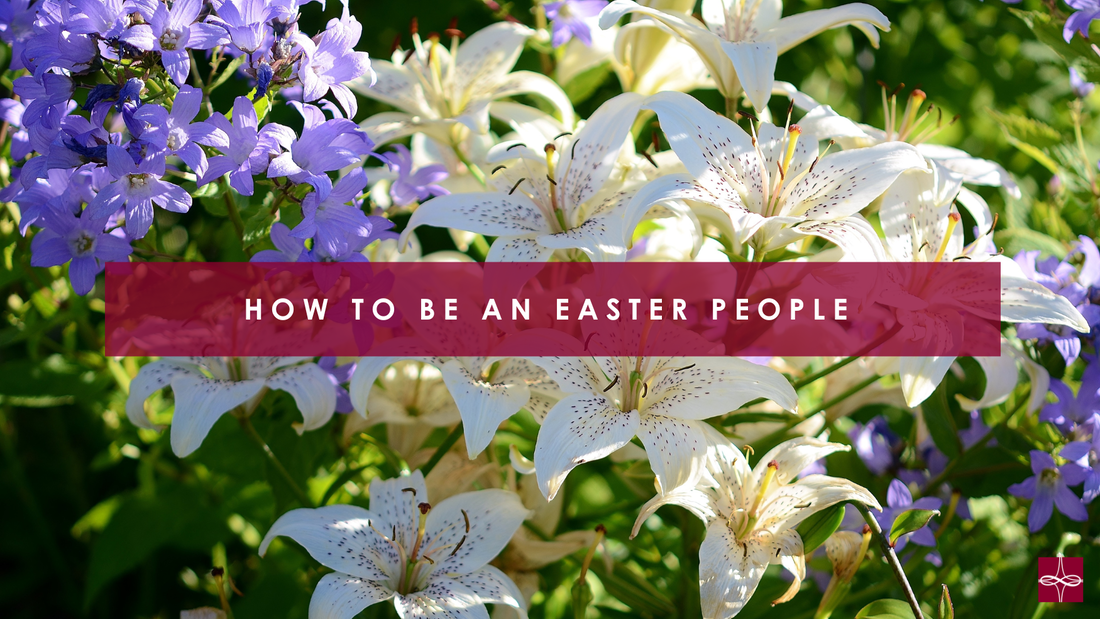





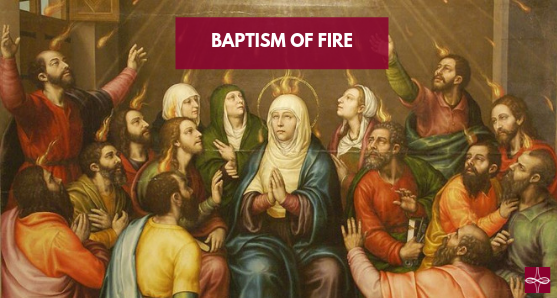

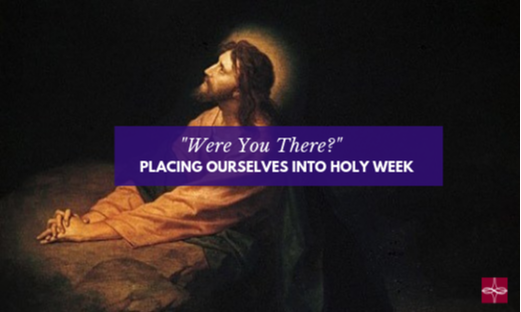

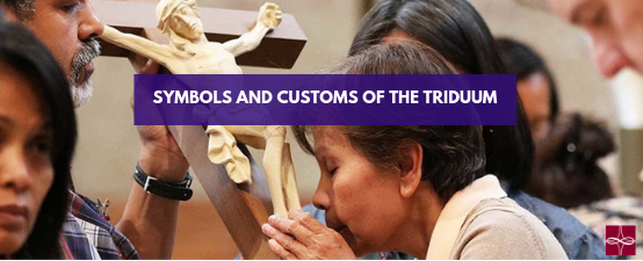



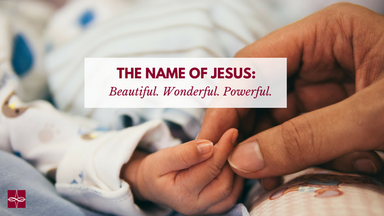

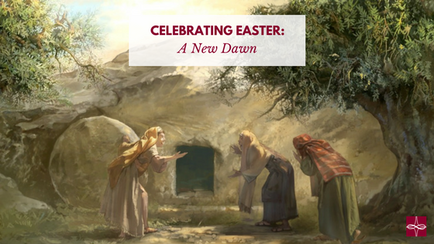

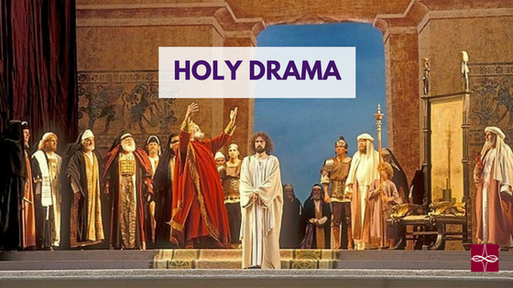

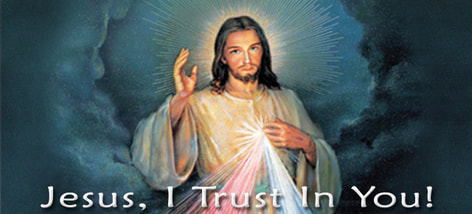
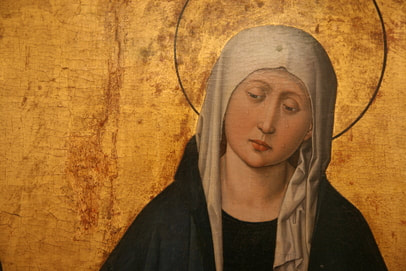
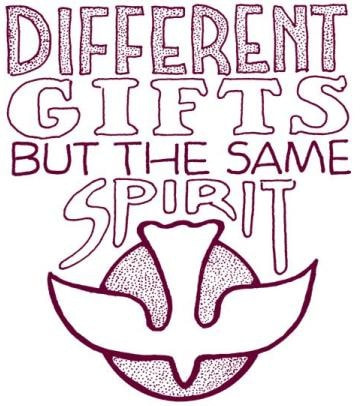
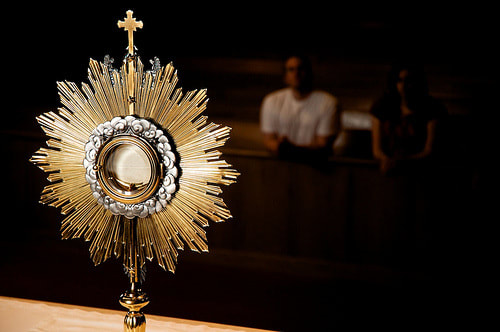
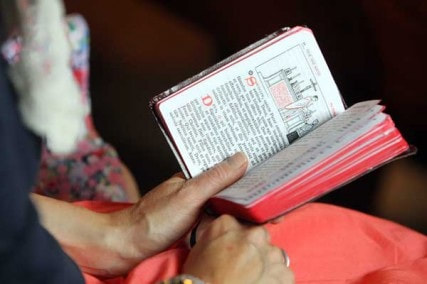
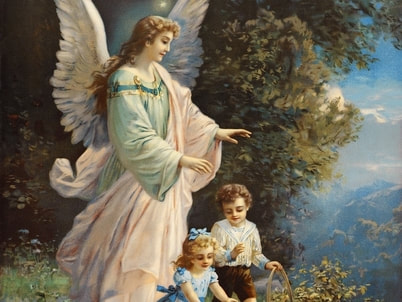

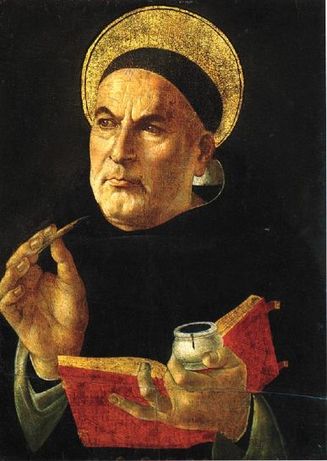
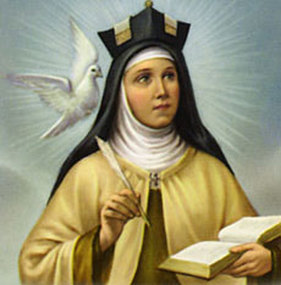
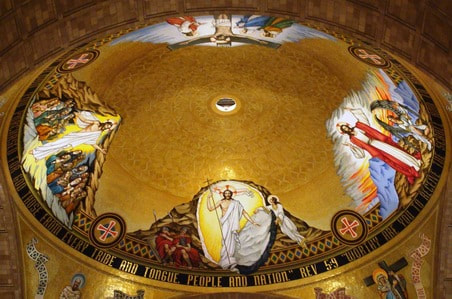
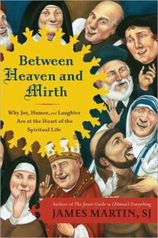
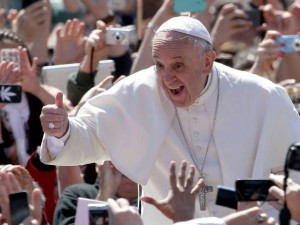

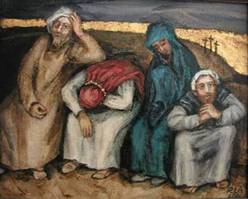
 RSS Feed
RSS Feed